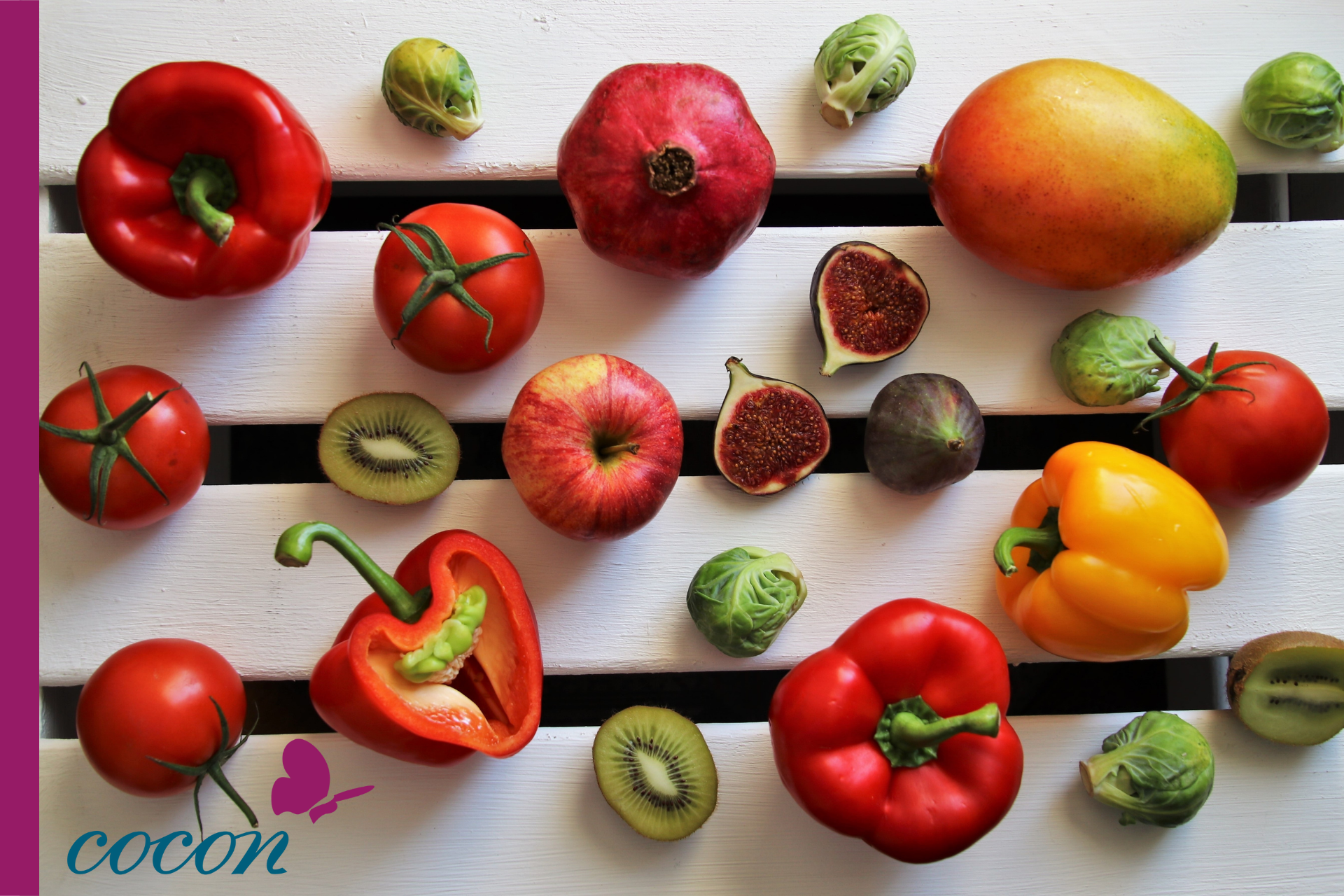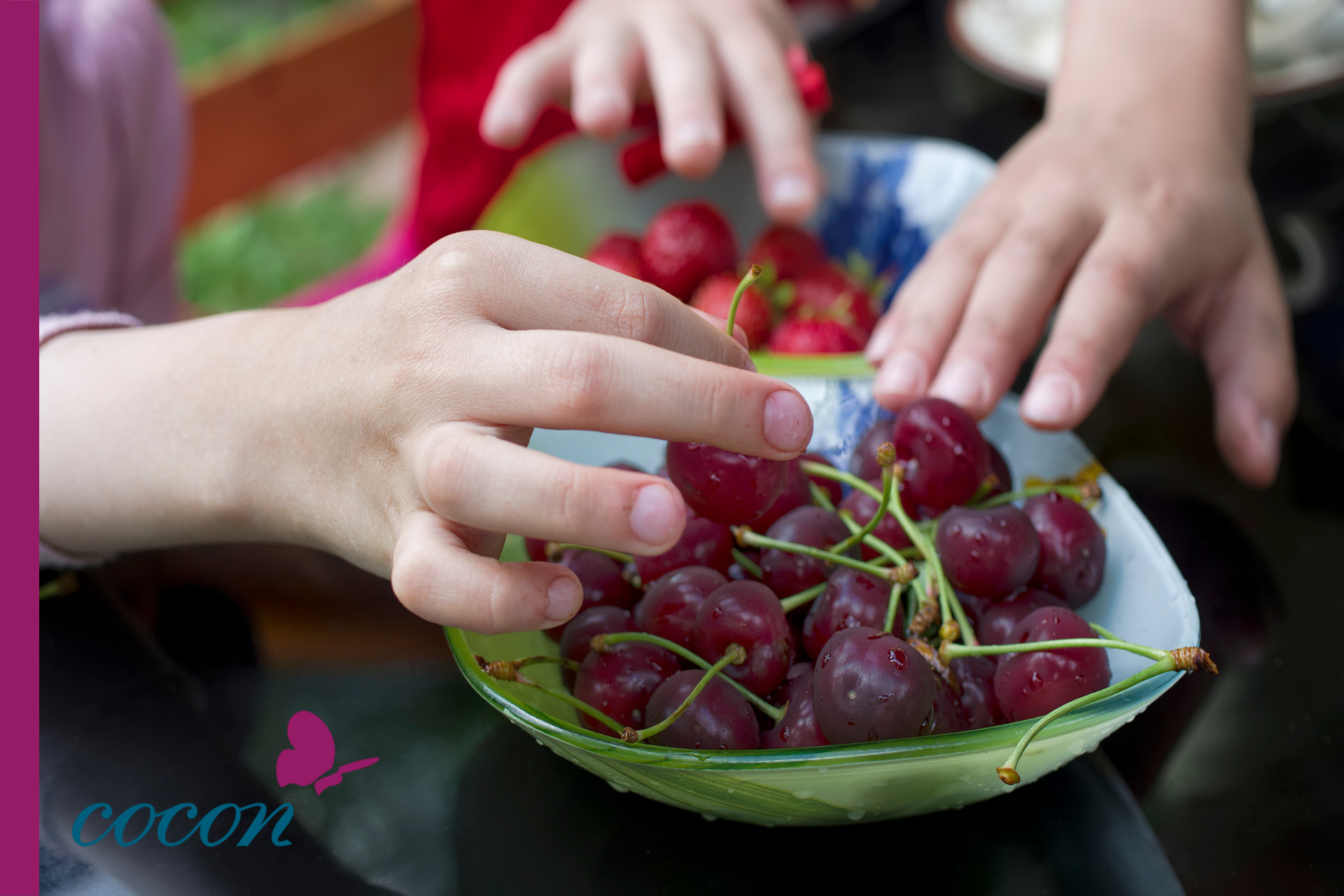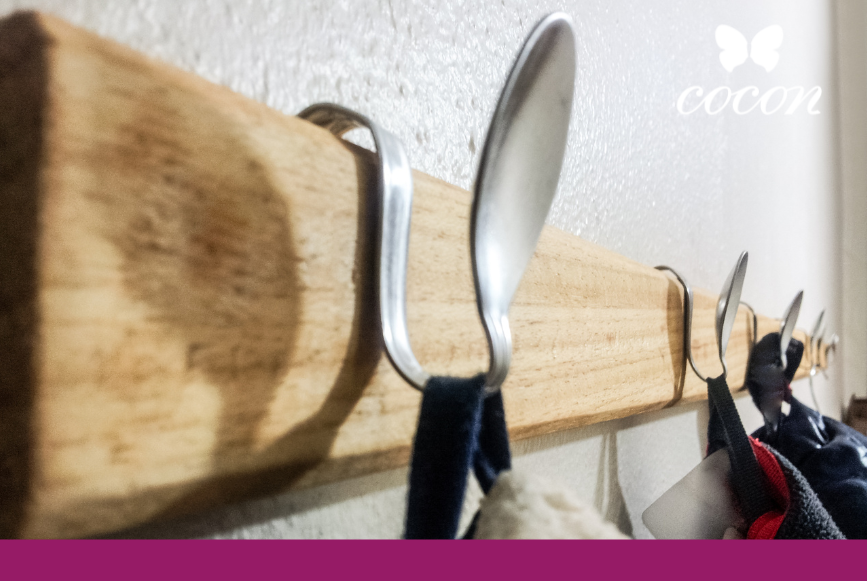Inhaltsangabe / Table of Contents/Table des matières
As long as your child is still at home, you as parents are solely responsible for its nutrition. However, this changes as soon as your child attends a day care centre. From this point on, it is important that everyone involved works together to ensure that your child continues to receive a balanced and healthy supply of everything he or she needs. In this article you will learn what exactly a balanced diet means, how it can be guaranteed and which nutritional concept we follow at cocon day care centres.
What is a balanced diet and why is it important?
Balanced means a little bit of everything. Variety is the most important rule here, as well as the right balance between foods. Three quarters of it should be vegetable, because fruit and vegetables provide numerous vitamins and minerals that are important for the body. The animal portion should be present, but in moderation. More variety on the plate also means including the whole diverse range of fruits and vegetables. A good orientation for a healthy diet can be the food pyramid of the Federal Centre for Nutrition.

A wholesome diet is important because it influences several factors at once: healthy food provides the child with the necessary energy for its daily activities, play and exercise. This in turn has the effect of minimising the risk of obesity and developing type 2 diabetes. According to the Federal Centre for Health Education, a balanced diet also promotes stress management, for example in conflict situations with other children.
So if one of the building blocks – nutrition, exercise, stress – is positively favoured, the other aspects will always be influenced as well.
What are the rules for a balanced diet?
Children want to learn, are curious and want to try everything. Perfect, therefore, to taste unfamiliar food and the variety of healthy foods. Younger children, in particular, are not yet settled in this respect and want to discover smells, colours, consistencies and tastes.
In order to provide your child with a balanced diet, it is not necessary to prepare very elaborate recipes. Just a few simple rules should be followed:
- Plenty of water or other unsweetened or sugar-free drinks.
- Plenty of plant foods such as vegetables, fruit, cereals and potatoes.
- Animal foods only in moderation.
- Go easy on salt, sugar, sweets, snacks and high-fat foods (especially chocolate cream, chips, crisps or similar).
Shared meals as a positive experience
But not only the pure intake of food plays a role. From a sociological point of view, eating together at the table is of great importance for the social development of a child. A person who wants to feel a sense of belonging to a group, a community, as a social being, experiences bonding and cohesion through shared meals – within the family, but also within a daycare group. In order for these times to be anchored in the child as a positive experience, no conflicts should be fought out at the table.
But the social component is not the only important factor: according to the AOK health magazine, casual eating, a meal that is not consciously eaten at the table, promotes obesity. If you eat unconsciously and distractedly, you simply eat too much. This makes it all the more important to set a good example for children right from the start.
Children do not yet know the difference between “good” and “bad” food – they imitate the eating behaviour of their role models.
Other advantages for shared meals:
- Children do not yet know a clock and thus learn to structure the day.
- The rhythm of shared meals makes it clear to the child that there is not always food when hunger comes. This builds up a better sense of “hunger and fullness”.
- Shared meals are a real learning place for children. They can gain new experiences, learn from the older ones and learn table rules.
- According to various studies, children who regularly eat together at the table eat more fruit and vegetables and have healthier eating habits overall.
In summary, a balanced diet contains all the nutrients a child needs to grow up. High-quality food creates the conditions for well-being, a strong immune system and performance. Above all, this means that the diet should be varied, diverse and colourful.
It is only logical that not only nutrition at home plays a major role. The way food is handled in day care centres also has an immense impact on your child’s development.
What nutritional concept is there at cocon?
At cocon, a healthy and varied diet is a top priority. We have a regional fresh kitchen with high-quality organic products and a seasonal menu, which parents can of course also view in advance. Depending on the booking time, the children receive a daily breakfast, lunch, snack, dinner and small snacks. The food always comes fresh directly from the kitchens and is eaten in the group rooms. Every child should feel comfortable while eating so that they can store and associate only positive experiences. This is exactly the reason why at cocon meals are always eaten in familiar surroundings and together with the confidants, the educators.
Childhood nutrition is formative, which is why we encourage the children to choose for themselves what they want to eat.

All ingredients are put on the table separately in different bowls and each component can be put together by the children themselves. In this way, we encourage the children to try new things, to explore food and to exchange ideas with each other. No one is forced to eat anything, which again strengthens the positive experience of eating. In addition, everyone is allowed to help themselves as often as they like until they are full, so that they learn to deal consciously with their own feeling of hunger. Of course, we make sure that the plates are not overloaded. Our credo, which we have been following for 10 years, is: “It’s better to eat more often and less.
Food is not used as a means of education and is not used in our day-to-day work to control the children’s behaviour. Food should be seen as nourishment and not as a means of motivation, reassurance, reward, distraction or even punishment. Our trained educators recognise and inquire about the child’s real needs when signals such as tiredness, anger, boredom arise and can react accordingly.
Not only the enjoyment of the meals is in the foreground with us, nutrition education in the day-care centre also includes helping, sharing, waiting for each other or handling cutlery. Our credo is “Eat in style, so it’s fun”, which is why we only eat from porcelain plates.
The advantages of the nutrition concept at cocon:
- We always eat together: Meals promote sociological development
- Eating in familiar surroundings directly in the group rooms
- Self-determined eating through the children’s own selection of foods
- No compulsion to eat
- Eating does not serve as a means of education
- High-quality organic products
- All meals without additives such as preservatives, flavour enhancers or colourings
- Tasty alternatives for allergy sufferers or proven intolerances
- Regular parents’ evenings with the chef
- Eating in style, so that it is fun: We only eat from porcelain plates and, depending on the age group, the children are supported in using cutlery
- Own children’s kitchen in Waldtrudering
Do you still have questions about our nutrition concept? Contact us and we will be happy to give you answers to anything you want to know!



